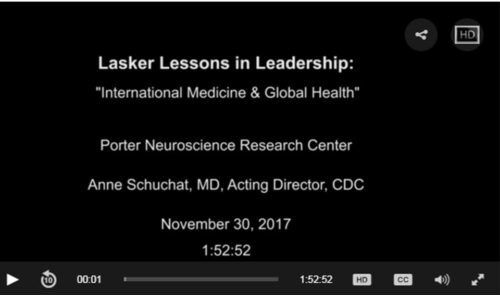
The Lasker Lessons in Leadership lecture series provides strategies for developing essential leadership skills to PhD and MD/PhD students, graduate students, and postdoctoral fellows. The series is a collaboration between the International Biomedical Research Alliance, the Albert and Mary Lasker Foundation and the NIH Oxford-Cambridge Scholars Program. Dr. Anne Schuchat, Principal Deputy Director, Centers for Disease Control and Prevention, was the keynote speaker for the Lasker Lessons in Leadership event held on November 30, 2017 Her talk entitled “Going Public: From the Bedside to the Big Picture”
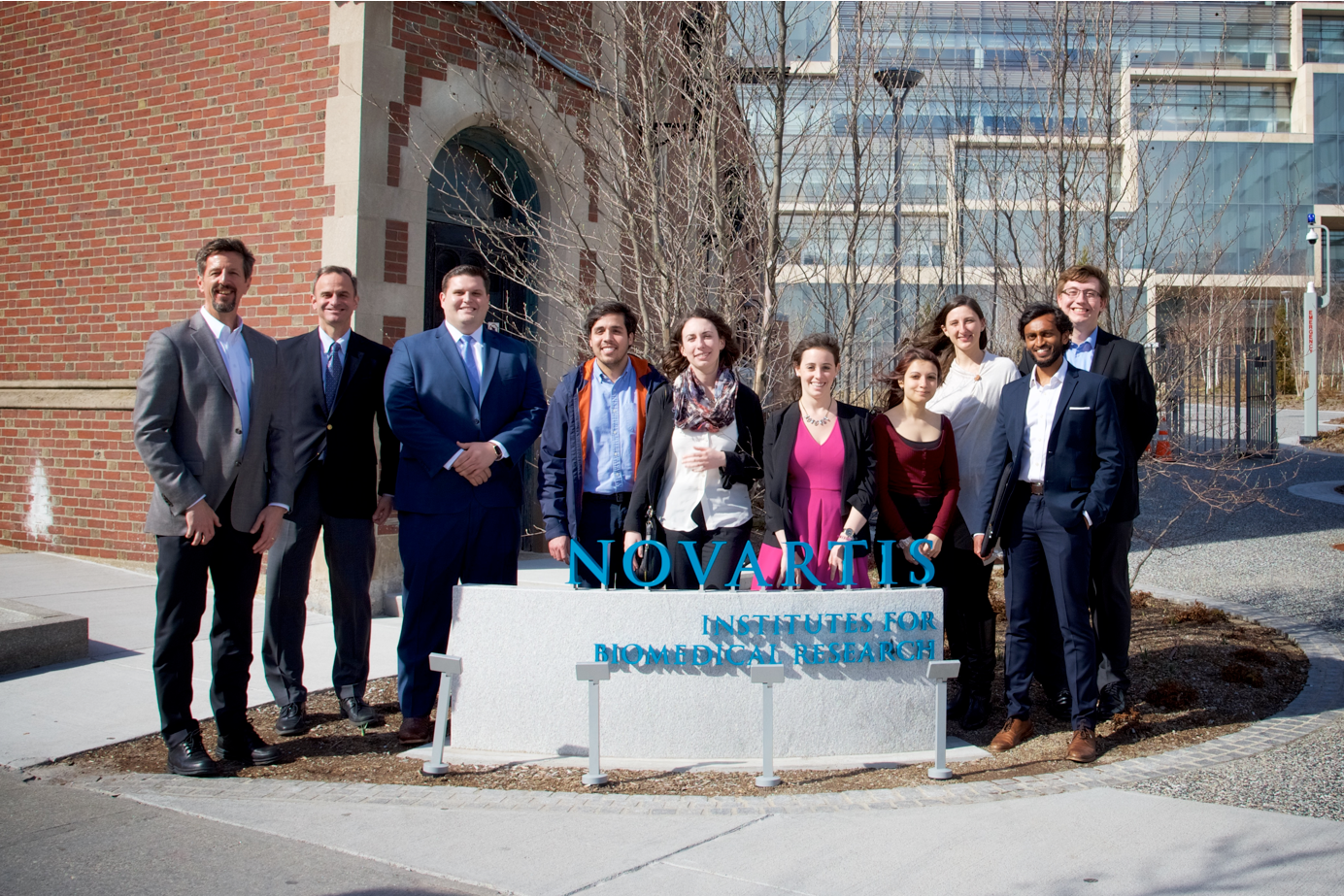
Scholars in the NIH Oxford-Cambridge Scholars Program recently experienced a career development field trip to the Novartis Institutes for BioMedical Research (NIBR) located in Cambridge, Massachusetts. The trip to NIBR, sponsored by the Alliance and thoughtfully coordinated by Drs. Eric Svensson and Jang-Ho Cha of Novartis, spanned a full day at the newly constructed $600 million campus in Cambridge. The agenda included research presentations made by both NIH OxCam Scholars and Novartis scientists, a synopsis of the Novartis Malaria Program, neuroscience and physician scientist career path panels, an overview of the NIBR Post-Doc Program, and a walking tour of the Novartis facilities. Patricia Gruver, Senior Science & Innovation Officer at the British Consulate General in Boston, made a morning visit to greet and welcome the Scholars. NIBR’s dynamic president, Dr. Jay Bradner, addressed the Scholars during their visit. Scholar Career Development Field Trips are a newly created initiative aimed at exposing Scholars to a variety a career options as well as providing an opportunity for Scholars to conduct formal presentations on their research.
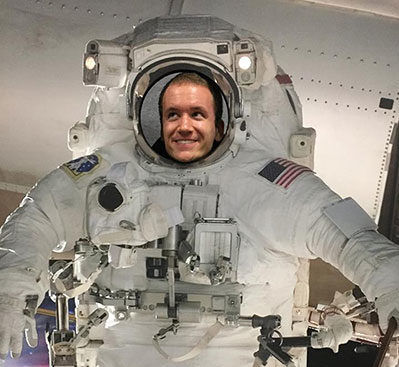
To infinity and beyond! It’s not such far out concept as Scholars learned on a recent career development field trip to NASA’s Goddard Space Flight Center in Greenbelt, Maryland. Established in 1959 and named for American rocketry pioneer Dr. Robert H. Goddard, it is home to the nation’s largest organization of scientists, engineers, and technologists who build spacecraft, instruments, and new technology to study Earth, the sun, our solar system, and the universe. Goddard is home to Hubble operations and the upcoming James Webb Space Telescope. Goddard manages communications between mission control and orbiting astronauts aboard the International Space Station. Goddard scientists stare into the sun, grind up meteorites for signs of life’s building blocks, consider the farthest reaches of space, and untangle the mysteries of our changing world.
The Goddard visit was focused on astrobiology (one of the many topics of science that NASA researches). Astrobiology is the study of the origins and evolution of life in the universe and on Earth. Astrobiology addresses whether life exists outside Earth and how we can detect signs of life in other areas of the universe. This field employs many of the scientific techniques that traditional biologists (like those at the NIH) use to understand the chemistry and evolution of life, but it also employs techniques developed to study the universe such as those used in astronomy, astrophysics, and aerospace engineering. For example, one of the NASA missions presented to the Scholars during their visit was OSIRIS-Rex, which involved using a satellite to intercept an asteroid and return a sample to Earth. Scientists believe that some of the precursor molecules important to life on Earth may have had origins in space. The researchers at NASA Goddard wanted to sample compounds from the asteroid to see if such molecules could be found on it.
Scholar Lindsey Rosen shared that astrobiology is more physics and analytical chemistry than it is biology: “Their aim is to study specimens retrieved from meteorites and asteroids for organic and inorganic compounds, thus determining if such environments are suitable for life (single-celled organisms and such). We also heard from folks who design instruments that are sent to Mars or used for meteorite/asteroid specimen collection. Such instruments are the result of international collaborations where many different institutions around the world contribute various devices.”
For many of the Scholars, space exploration has been an inspiring area of science from the time they were children. The fundamental questions that NASA seeks to answer are important to all of us: How did the universe form? Are there other life forms out there? Additionally, the advanced and diverse technology that NASA uses in its research is exciting and fascinating.
Scholar Keval Patel noted that “personally, space exploration was one of the main reasons for my pursuit of an engineering and science education. My lifelong dream is to travel to space and perform science that pushes the limits of human space exploration.”
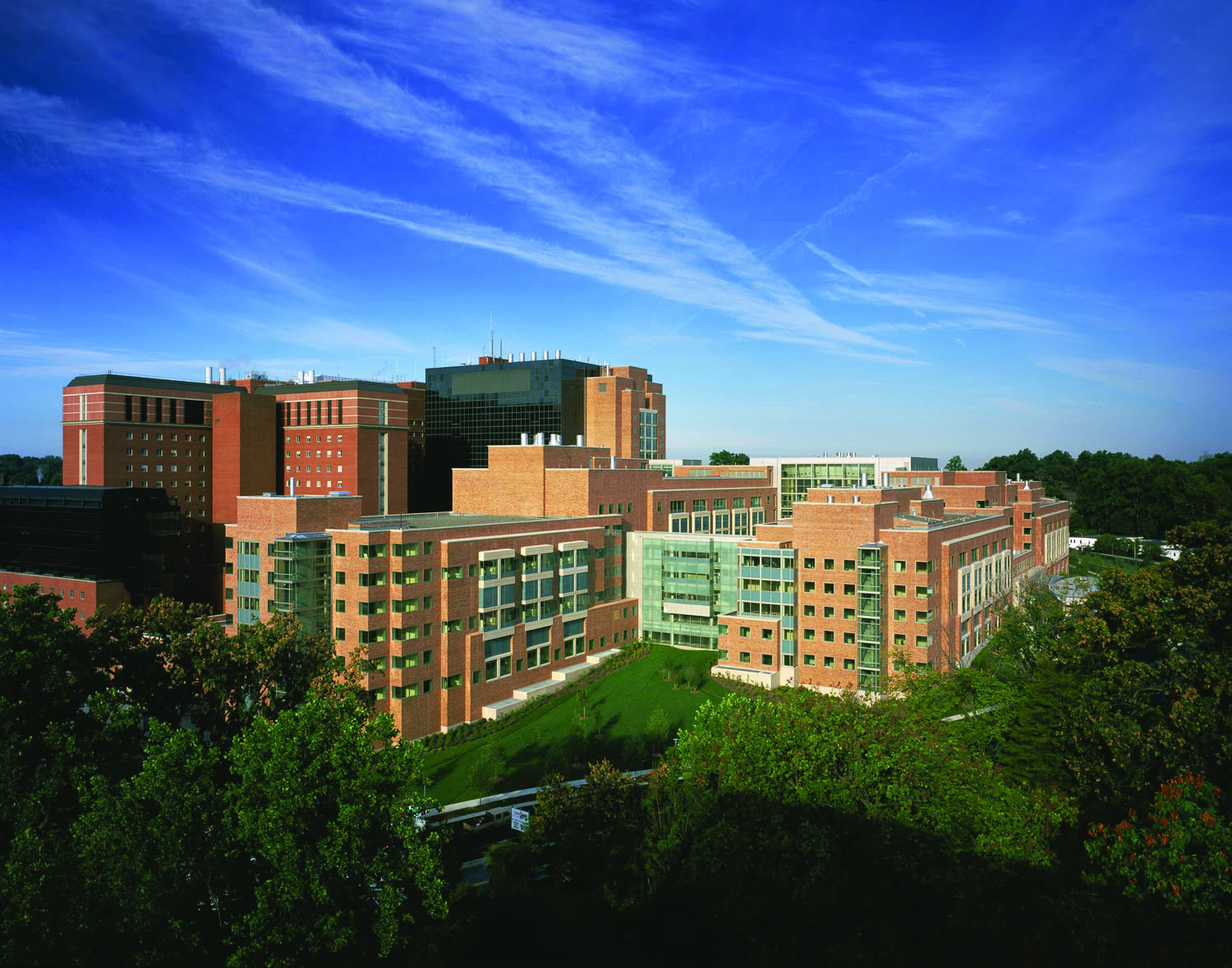

Cover of Trends in Immunology December issue.
Soucy, Katie et al. publish an article about the NIH-Oxford-Cambridge Scholars program in the December issue of Trends in Immunology (Volume 37 , Issue 12 , 813 – 815). Click here to read the full article.
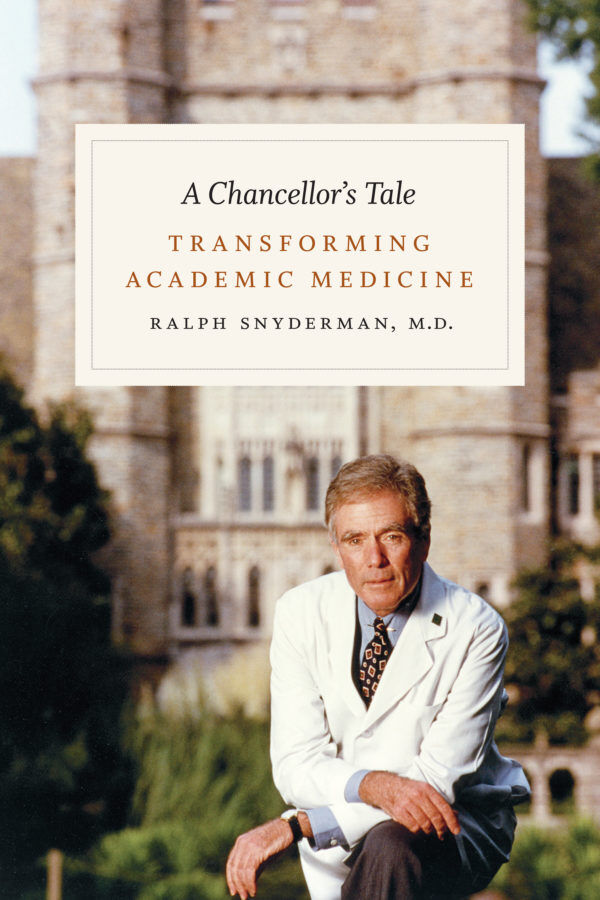
During his fifteen years as chancellor, Dr. Ralph Snyderman helped create new paradigms for academic medicine while guiding the Duke University Medical Center through periods of great challenge and transformation. Under his leadership, the medical center became internationally known for its innovations in medicine, including the creation of the Duke University Health System—which became a model for integrated health care delivery—and the development of personalized health care based on a rational and compassionate model of care. In A Chancellor’s Tale Snyderman reflects on his role in developing and instituting these changes.
Beginning his faculty career at Duke in 1972, Dr. Snyderman made major contributions to inflammation research while leading the Division of Rheumatology and Immunology. When he became chancellor in 1989, he learned that Duke’s medical center required bold new capabilities to survive the advent of managed care and HMOs. The need to change spurred creativity, but it also generated strong resistance.
Among his many achievements, Dr. Snyderman led ambitious institutional growth in research and clinical care, broadened clinical research and collaborations between academics and industry, and spurred the fields of integrative and personalized medicine. Snyderman describes how he immersed himself in all aspects of Duke’s medical enterprise as evidenced by his exercise in “following the sheet” from the patient’s room to the laundry facilities and back, which allowed him to meet staff throughout the hospital. Upon discovering that temperatures in the laundry facilities were over 110 degrees he had air conditioning installed. He also implemented programs to help employees gain needed skills to advance. Snyderman discusses the necessity for strategic planning, fund-raising, and media relations and the relationship between the medical center and Duke University. He concludes with advice for current and future academic medical center administrators.
The fascinating story of Snyderman’s career shines a bright light on the importance of leadership, organization, planning, and innovation in a medical and academic environment while highlighting the systemic changes in academic medicine and American health care over the last half century. A Chancellor’s Tale will be required reading for those interested in academic medicine, health care, administrative and leadership positions, and the history of Duke University.
Dr. Snyderman joined the Alliance Board of Directors in 2012 and has served as a member of the sub-committee on Strategic Planning/Vision. In May of 2015 he was the keynote speaker at the inaugural Lasker Lessons in Leadership, a lecture series which is a collaborative effort between the Albert and Mary Lasker Foundation, the Alliance, and the NIH Oxford-Cambridge Scholars Program. Dr. Snyderman takes a personal interest in the research conducted by the scholars and has attended the annual Scientific Research Colloquium and spearheaded Mentoring Days for student in the NIH OxCam program. He is Chancellor Emeritus, Duke University, James B. Duke Professor of Medicine, and Director of the Center for Research in Personalized Health Care at the Duke University School of Medicine. He previously served as Chancellor for Health Affairs at Duke University and as the founding President and CEO of the Duke University Health System; Dean of the School of Medicine at Duke University; Chair of the Association of American Medical Colleges; Senior Vice President, Medical Research and Development, Genentech, Inc.; Director, Laboratory of Immune Effector Function, Howard Hughes Medical Institute; Chief, Division of Rheumatology and Immunology at Duke; and Senior Investigator, National Institutes of Health.
Dr. Snyderman has received numerous honors, including the Personalized Medicine World Conference Pioneer Award (2016), the North Carolina Life Sciences Leadership Award (2014), the Association of American Medical Colleges David E. Rogers Award (2012), the Industrial Research Institute Medalist Award (2008), the Ellis Island Medal of Honor (2003), and the CIBA-GEIGY Award for Lifetime Achievement in Inflammation Research (1992). He has authored almost 400 manuscripts and is the editor or co-editor of several books.






